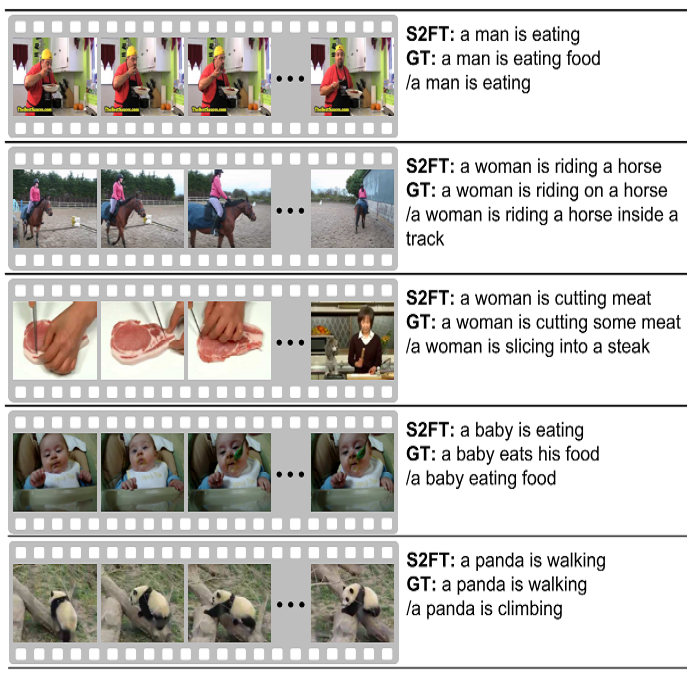Video captioning models easily suffer from long-tail distribution of phrases, which makes captioning models prone to generate vague sentences instead of accurate ones. However, existing debiasing strategies tend to export external knowledge to build dependency trees of words or refine frequency distribution by complex losses and extra input features, which lack interpretability and are hard to train. To mitigate the impact of granularity bias on the model, we introduced a statistical-based bias extractor. This extractor quantifies the information content within sentences and videos, providing an estimate of the likelihood that a video-sentence pair is affected by granularity bias. Furthermore, with the growing trend of integrating contrastive learning methods into video captioning tasks, we use a bidirectional triplet loss to get more negative samples in a batch. Subsequently, we incorporate the margin score into the contrastive learning loss, establishing distinct training objectives for head and tail sentences. This approach facilitates the model's training effectiveness on tail samples. Our simple yet effective loss, incorporating Granularity bias, is referred to as the Margin-Contrastive Loss (GMC Loss). The proposed model demonstrates state-of-the-art performance on MSRVTT with a CIDEr of 57.17, and MSVD, where CIDEr reaches up to 138.68.
翻译:暂无翻译



